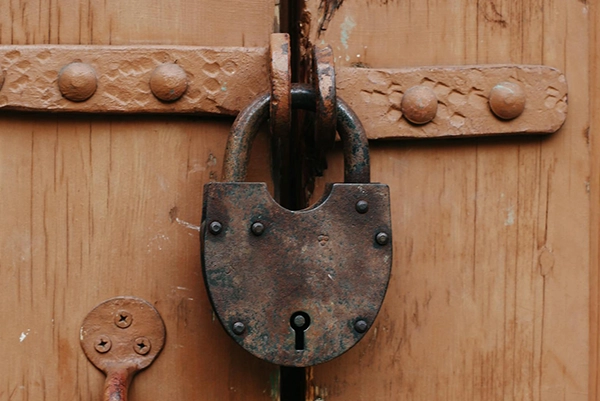1. Introduction
Whenever a person deriving his/ her power by The Prevention of Money Laundering Act, 2002 hereinafter referred to as the Act, who in the instant discussion of attachment of property would be the Director or an officer authorised by the Director not below the rank of Deputy Director, believes that a certain property which is a proceed of crime is likely to be concealed, transferred or dealt with in any manner which may result in frustrating any proceedings relating to confiscation of such proceeds of crime under the Act, he or she may provisionally attach such property.
In simple words whenever a person, who has the power, believes that a person has committed a certain crime and in pursuance to that crime has received certain property which is the proceed of crime and is likely to do a certain act, like concealing the origin of that property, transfer that property or is likely to do any other act due to which the confiscation of such property would become impossible, then to stop such person from doing so he/ she may provisionally attach that property/ proceed of crime so that any proceedings under the Act may not get frustrated. This provision is envisaged in section 5 of the Act.
2. Objective
The objective of this section is to enable the prosecuting agency to connect the dots and prove the crime before a competent court of law and to restrict the concealment or the transfer of the property obtained illegally through illegitimate sources.
3. Procedure Prior To Order Of Attachment
There are three ways through which the requirements of the procedure to be followed prior to the order of attachment can be fulfilled. Even if one of these is done, the requirement of the other won’t be necessary however if neither is done it would result in illegal attachment which would make the order of attachment contrary to law.
The Director or the authorised officer may prepare a report and forward it to the magistrate having jurisdiction under section 173 of the Code of Criminal Procedure 1973, or he/ she may file a complaint before the concerned magistrate to take cognisance of the scheduled offence, or in a case where Indian law would not be applicable then he/ she may forward a report or file a complaint under the corresponding law of that country.
Further, the second proviso of sub section 1 of section 5 of the Act empowers the authorised person to attach the property not only in a case where concealment or transfer of such property may frustrate proceedings relating to confiscation but extends to frustration of any proceedings under the Act however following the procedure is still sine qua non.
4. Period During Which The Property May Remain Attached
The property which is believed to be a proceed of crime may be attached for a period not beyond 180 days from the date on which the order of attachment is passed. However, any period during which a stay has been granted by a superior court is to be excluded while counting such period.
5. Procedure Post Order of Attachment
Immediately after passing the order of attachment, the authorised officer who is the Director or any other person not below the rank of Deputy Director authorised by the Director has to forward the order of attachment along with the material in his possession on which he relies upon for such attachment to the Adjudicating Authority in a sealed envelope. The Adjudicating Authority exercises jurisdiction and adjudicates upon disputes under this Act and is defined under section 2 (a) of this Act. It comprises of one Chairperson and two other members.
The Director or the authorised person who provisionally attaches any property under this section is also supposed to file a complaint stating the facts of such attachment before the Adjudicating Authority within 30 days of the order of attachment.
6. Enjoyment During Attachment
The persons who claim or are entitled to claim any interest in any immovable property that is provisionally attached have been given the liberty to enjoy such immovable property even during the period of attachment through this section.
7. Property That Can Be Attached
The officers empowered under the Act have been given wide powers to provisionally attach any property that they believe to be a proceed of crime however the higher courts to prevent misuse of such power have clipped the wings of these officers by deciding two important law points among many other through case laws. First, that the property acquired before the date of the offence as alleged cannot said to be a property acquired through proceeds of crime and second, that an offence punishable will become a scheduled offence only if the conspiracy alleged is of committing an offence which is specifically included in the schedule; (Pavana Dibbur v/s Directorate of Enforcement, Criminal Appeal Number 2779 of 2023 decided by the Hon’ble Supreme Court of India on 29.11.2023).
8. Authors Comments
A crime precedes any act of money laundering. Thus, any property acquired before the initial crime cannot be a proceed of crime. The proceeds obtained as a result of the crime committed is the property which is known as “proceeds of crime”. These proceeds of crime are a crucial piece of evidence and help in establishing the initial crime itself. If in case the accused is able to conceal its origin by laundering the property or transfers the property further, its attachment or confiscation would become difficult since the accused committing the initial crime would no longer be in possession of the proceeds of crime. In such a situation even if the accused is caught for the initial crime, confiscation or attachment of the proceed of crime would become nearly impossible. However, keeping in view the settled law i.e. every accused is innocent until proven guilty, the legislature has carefully thought and allowed the accused person to enjoy any immovable property that is believed to be a proceed of crime even after its provisional attachment.





